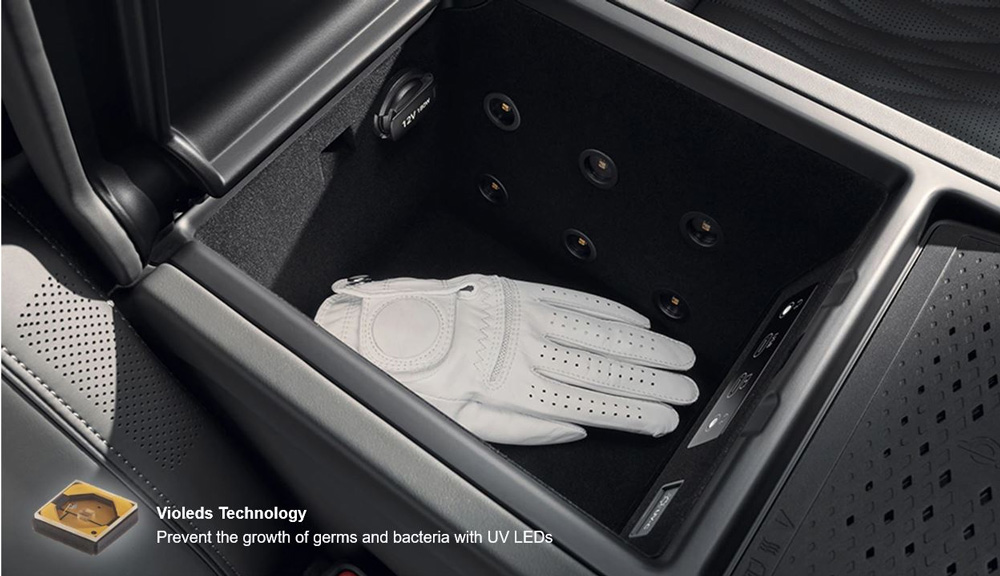News: LEDs
19 September 2022
Seoul’s Violeds UV-C disinfection applied to Genesis G90 sedan
Seoul Viosys offers optimized disinfection solutions, operating its own auto lab.
UV-C LED lamps incorporating Violeds disinfection technology, developed by South Korean LED maker Seoul Semiconductor Co Ltd, have been installed in the armrest console box in the back of luxury sedan car maker Genesis’ new model G90 (launched in first-half 2022) in order to disinfect passengers’ belongings (in the aftermath of the COVID-19 era).

Picture: Violeds UV-C LEDs applied in the armrest console box of the Genesis G90.
Depending on its models, 6-12 LED lamps are installed, eliminating up to 99.9% of harmful germs (E.coli, staphylococcus aureus, and pneumobacilli) in personal possessions within 10 minutes after the lid is closed (according to test results from Genesis’ parent firm Hyundai Motor Company, validated by global testing and certification agency Intertek).
Violeds is a patented UV LED solution to prevent the growth of germs and bacteria that was developed and applied by Seoul Semiconductor’s subsidiary Seoul Viosys. According to 2021 data from market research agency Omdia, Seoul Viosys ranks first in the world in UV LED technology.
Seoul Viosys has developed air-sterilization solutions, as well as Violeds-based surface disinfection systems. In August 2021, the firm unveiled its solution to prevent the spread of the delta variant, since it is able to remove 99% of indoor airborne viruses. Based on the test results, at January’s Consumer Electronics Show (CES 2022) in Las Vegas the firm demonstrated the process of disinfecting auto air-conditioning systems.
“Operating our own auto air and surface sterilization lab, we have done our utmost to further develop UV LED disinfection technology,” says Seoul Semiconductor. “Acquiring the AEC-Q102 certification (the automotive LED reliability standard), Violeds technology will become an optimized solution for auto healthcare projects required by clients.”
SETi and Seoul Viosys’ Violeds technology kills 99% of coronavirus within a second









